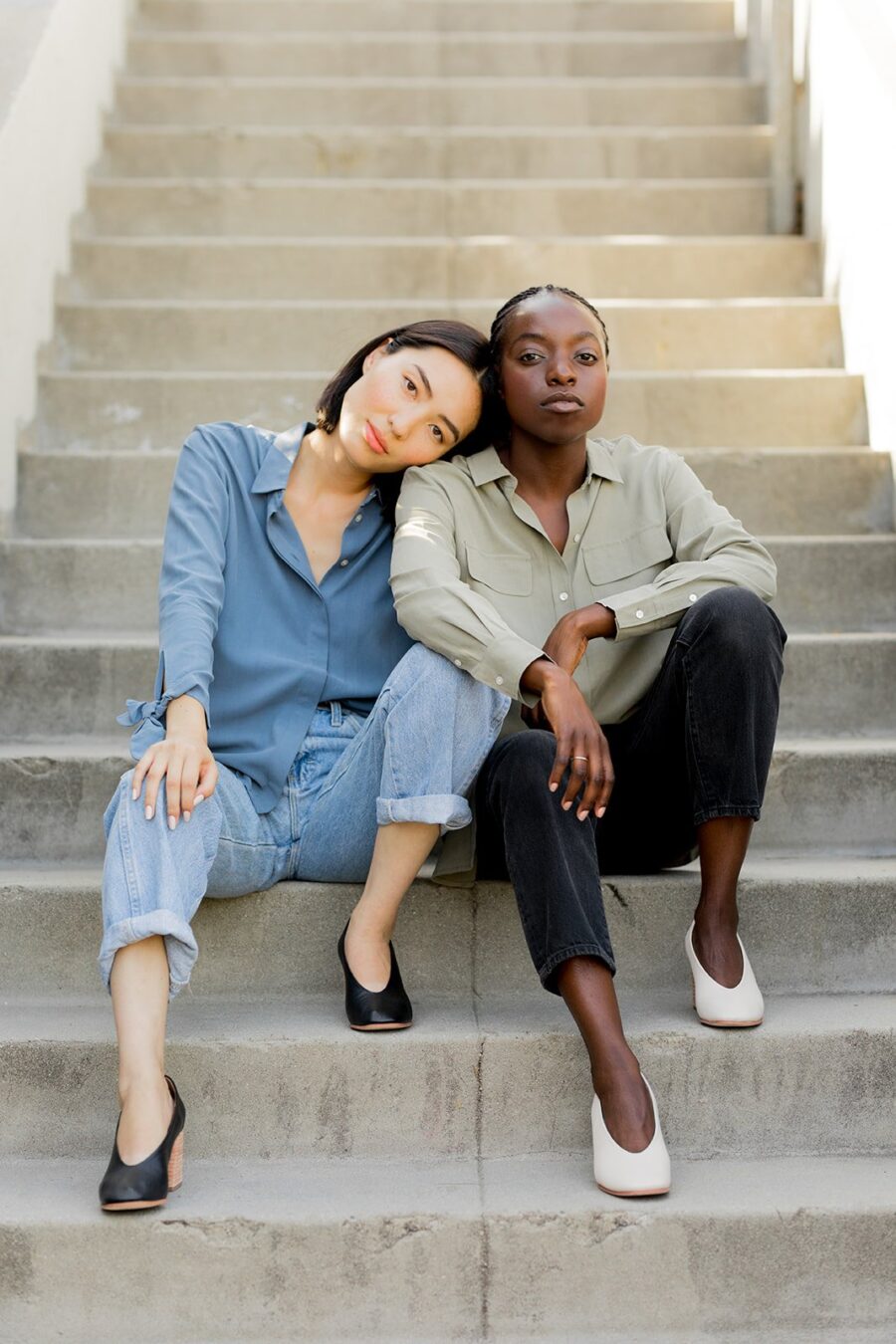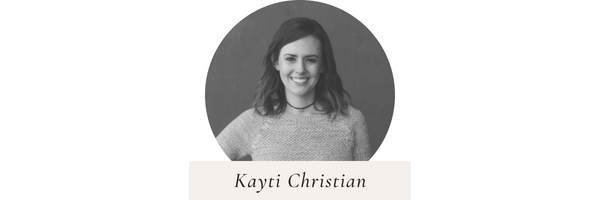
Our Editors Discuss How To Practice Healthy Accountability In Friendships
How do you practice healthy accountability
with your friends?
Accountability isn’t easy in any relationship, but it can be especially daunting to navigate with friends. Join our editorial team for a roundtable discussion focused on the challenges and joys of accountability, as well as autonomy, in friendship.
Emily, Managing Editor: I’ll start with a story: I had a friend who started dating a lot of people in college. And I was jealous. I wanted to be important in her life, and I felt like I wasn’t—that was on me. So one time when she started dating someone new, I asked, “Oh, how long is this one going to last?”
AmyAnn: Co-Founder: Ouch!
Emily: Yeah. It turns out she married that man, and he’s a gem, but I know that moment really hurt her. But I also didn’t know how to tactfully tell her that I wanted something different for her.
AmyAnn: Yes. Or that you were seeing a pattern that concerned you.
Emily: Exactly. I managed it completely inappropriately. So, I’d love to talk about times friends have held you all accountable, especially when it’s felt healthy and constructive, and maybe even hard.
“I’m learning to differentiate between positive accountability—even if I’m initially resistant—and advice that doesn’t align with who I am.”
Celeste, Social Media Coordinator: For me, I want to be autonomous and have the final say in my life. But I’m also learning long-time friends can recognize negative patterns. I’m working on receiving their criticisms and feedback, rather than falling into the trap of thinking they’re being mean or don’t want me to be happy. But sometimes I get in this mindset, where I’m like: everyone is against me; they want me to live a certain life. I’m learning to differentiate between positive accountability—even if I’m initially resistant—and advice that doesn’t align with who I am.
Emily: It’s interesting how much of it starts and depends on internal work. It’s not like you can tell someone to hold you accountable in a healthy way. You have to manage how you receive and process accountability.
Courtney, Associate Editor: It’s like an ego test. I have one friend who is so good at initiating a conversation when she’s upset or uncomfortable in our relationship. She’ll message me and ask if we can meet for coffee or tea. Even though it’s only happened a handful of times, it’s happened enough that I know a hard conversation is on the horizon. But she’s taught me to be really good at voicing my feelings. She never attacks me, and we converse in a very diplomatic way. She’ll say, “A, B, and C made me feel this way. How can we move forward?” It’s made us such strong friends.
“Accountability has taught me to be really good at voicing my feelings.”
AmyAnn: Do you feel like what she’s bringing to the table is more internal to your relationship, or is she holding you accountable for things outside of your friendship?
Courtney: Both. Like one time she called me out on something that had nothing to do with our relationship. It was bold. What was crazy about it was that my husband had called me out about the same thing before that.
Team: (laughs)
Courtney: Though when I hold friends accountable, it’s usually more about our friendships and less about patterns I recognize in other areas of their lives.
AmyAnn: It’s funny—when I look back, there are themes based on the stages of life. There was a lot of transparency in my friendships during college and even post-college. My friends and I would call each other out all the time, especially regarding potential partners that we didn’t think were right. But now my friends are focusing on their careers and transitioning to motherhood. We tell each other to prioritize self-care, but none of that feels super vulnerable or painful, not in the way that the accountability with my sisters can be. I don’t think I have very many friends who I’d let call me out on the hard stuff.
“We talk about expectations. We’re very explicit about what we want and need when it comes to these conversations.”
Courtney: And I think this particular friend is just extremely open and vulnerable with all of her emotions—it’s just her personality and comes with the territory. You know you’re going to go real deep and talk about everything. But I also have friends who aren’t that way. I’ve just learned to pick up the phone and say, “Let’s have a phone call. I have some things I want to talk about.” And then you either grow with that friend, or maybe you don’t. Maybe that’s when you evaluate a relationship to see if it’s still working.
Emily: It can feel really clunky at first. My friends and I have begun talking more about mental health challenges and depression. In the past, many of us would isolate ourselves and never talk about our struggles. A friend would casually say, “Last week, I was not able to get out of bed.” I’d be like, “What? You should have told me this.”
So we’re learning to have the harder conversations, and discuss a game-plan for reaching out when we’re feeling down. We talk about expectations and how to simply say, “I’m having a bad day, but I don’t want to talk about it.” Or, “I’m having a bad day and I don’t want you to fix it. Just listen.” We have to build patterns and be very explicit about what we want and need when it comes to these conversations. Because otherwise, I’m a fixer.
Courtney: Same.
Emily: I feel the need to fix whatever’s wrong, and that’s super overwhelming for a lot of people. My friends and I make rules for exactly how to talk to each other—like down to the words and tone of voice. It’s helped a lot and created a space where it feels easier to reach out.
AmyAnn: That seems fairly self-aware.
Emily: (laughs) It took a long time to get there.
Celeste: That’s also why I love to know my friends’ Enneagram numbers.
AmyAnn: Ha! Right? That’s such a great point.
“No friend can be put in a box or wrapped up with a pretty bow.”
Celeste: It helps me to understand how they function. And so many of my friends are different from me. For me to know how they work, know when they’re feeling sad, like how to reach out to them, it’s so helpful. And of course, no one can be put in a box or wrapped up with a pretty bow, but it really is so helpful. When one of my friends is feeling down, she doesn’t want to talk about it. So, we’ll get on the phone and talk about something funny or encouraging. Whereas, for me, as an Enneagram four, I want to have a therapy session.
Kayti, Editor: Haha, yes.
Celeste: Knowing how people work, being patient, and not expecting them to have the same emotional response has been so helpful in navigating my friendships.
Kayti: I think another thing with accountability in friendships is understanding that people are usually pretty self-aware. I’m trying to reframe my relationships with that in mind. So instead of calling a friend out and saying, “Hey, I’m noticing this negative pattern,” I try to present questions and create a space for conversation, so they can recognize a negative behavior and draw their own conclusions. Because everybody unconsciously knows when they aren’t taking care of themselves or when they’re in an unhealthy relationship. Not always, but more often than not. And people get really defensive when called out; I know I get defensive. I need to make the thought journey on my own.
Emily: That makes sense.
Kayti: Also, when there is tension, I’ve found the best approach is to call a “pause” or “time-out.” When confrontation happens—especially if it’s over text—I’m like, “Stop. We’re meeting in person or getting on the phone.” I like to start over, to remind myself that this is my friend and we know the best in one another. Usually, there is a deeper issue that needs to be addressed if one of us is getting defensive or passive-aggressive.
“It comes down to respecting autonomy. No one’s ready to hear a call out that they’re not ready for.”
AmyAnn: Yeah, and that comes back to respecting autonomy, No one’s ready to hear a call out that they’re not ready for, you know?
Kayti: Totally.
AmyAnn: I’ve been on the side of receiving a call out I wasn’t ready for, and it was deeply painful. My friend didn’t have context, and if she would have asked questions, it may have been less painful for both of us. I reacted aggressively. But it also felt unfair because she didn’t know all of the details. Asking questions before confronting a friend allows you to see the whole picture and hear about the conscious and unconscious journey they’ve been on. That’s so important.
Courtney: Yes, and going back to what Kayti was saying: we all love our friends. We can trust that. And we can believe they love us and want the best for us. Approaching accountability with unconditional love rather than hurt and pride is essential. It’s like, “I love you. How can we discuss this?”
Emily: Especially when it comes down to something outside of the relationship, like some sort of pattern of behavior. I’ve had conversations with friends where I’ll say, “Hey, I love you so much, and I see the way you talk to yourself, and I hate that. I know it’s not easy and that you can’t change overnight, but I want to be here for you and support you in moving past this.”
“We can receive advice without implementing it. We need accountability, but we also need to be confident in our decisions.”
Kayti: I think it’s also important to note that sometimes our friends are wrong—or we are wrong—and that’s okay, too. We can receive advice without implementing it. We need accountability, but we also need to be confident in our decisions. Which comes back to autonomy and respecting a friend’s right to choose what’s best for their life.
Celeste: Totally. My favorite friendships are the ones where I know my friends are respecting my decisions. I can come to them for advice, but I know that I’m not going to leave the conversation feeling pressure to do what they’ve told me. When you have that kind of friendship, there’s accountability, but also mutual understanding and respect.
RELATED READING
Kayti Christian (she/her) is an Editor at The Good Trade. Growing up beneath the evergreens in the Sierra Nevadas, she returns to California after a decade split between states—including three years lived abroad. With an MA in Nonfiction Writing, she’s passionate about storytelling and fantastic content, especially as it relates to mental health, feminism, and sexuality. When not in-studio, she’s camping, reading memoir, or advocating for the Oxford comma.

